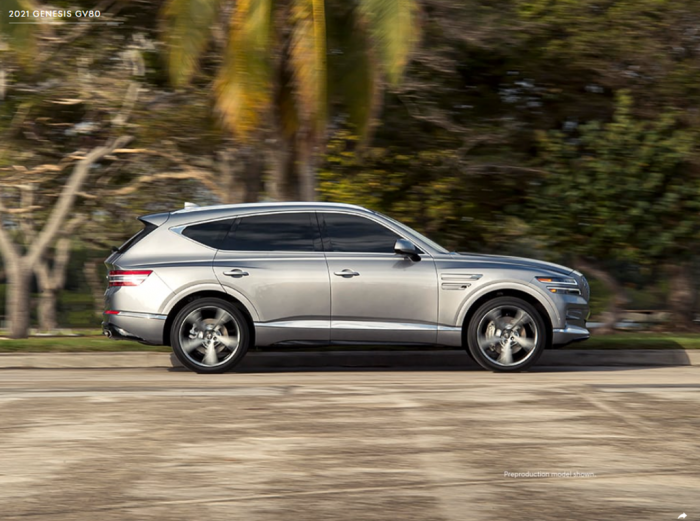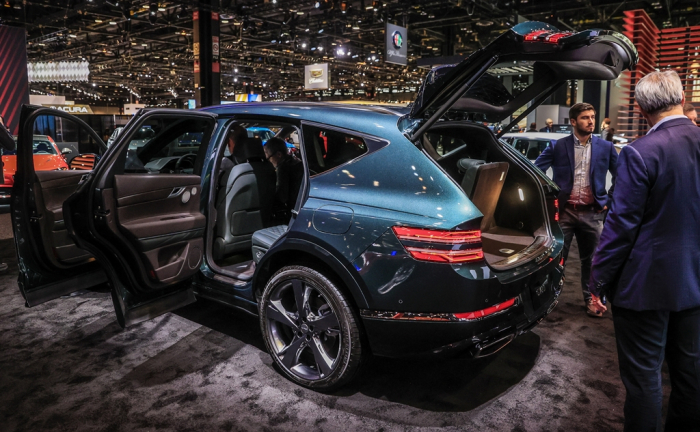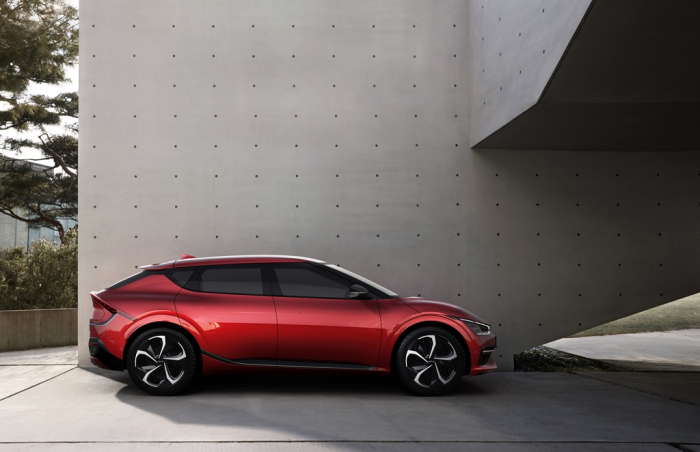Hyundai, Kia set for record profit with lower incentives than Toyota
The Korean duo is also gaining ground in the EV market, posing a challenge to Tesla
By Jun 27, 2022 (Gmt+09:00)
LG Chem to sell water filter business to Glenwood PE for $692 million


Kyobo Life poised to buy Japan’s SBI Group-owned savings bank


KT&G eyes overseas M&A after rejecting activist fund's offer


StockX in merger talks with Naver’s online reseller Kream


Mirae Asset to be named Korea Post’s core real estate fund operator



South Korea’s two largest automakers – Hyundai Motor Co. and Kia Corp. – are expected to post their highest ever profit for the second quarter and the entire year despite the industry’s dim outlook amid higher costs and murky situations in China and Ukraine.
Hyundai Motor will likely post 2.14 trillion won ($1.66 billion) in operating profit for the April-June period while Kia’s operating profit is forecast at 1.71 trillion won, bringing their combined quarterly profit to an all-time high of 3.85 trillion won, according to the market consensus on Monday.
In the first quarter of this year, the two companies ran a combined operating profit of 3.54 trillion won.
For the full year, Hyundai Motor’s and Kia’s operating profits are forecast to reach 8.29 trillion won and 6.57 trillion won, respectively, bringing their total to 14.86 trillion won. If realized, the companies’ earnings will surpass their previous record high of 11.96 trillion won in 2012.
Last year, Hyundai Motor and Kia earned a combined 11.74 trillion won on the operating level.
The rosy prospects come as global automakers witnessed declining sales and profits as soaring inflation fears, coupled with the resurgence of the COVID-19 pandemic in China and the ongoing Russia-Ukraine war, spook new car demand.
Analysts said Hyundai and Kia will likely be less affected by encroaching external uncertainties thanks to the growing popularity of the Korean duo’s eco-friendly vehicles, including electric models.

LOWER DEALER INCENTIVES, SHALLOWER INVENTORY
Last month, Hyundai said its premium Genesis brand saw considerable growth in its US car sales as all other major carmakers reported a significant drop amid a continued automotive chip shortage
Genesis was the only brand among major carmakers that posted sales growth in April while Kia said its accumulated US sales passed the 10 million mark for the first time since deliveries began in 1993.
Strong retail demand has also lowered the two Korean carmakers’ global car inventory to a record-low level of about one month’s worth of vehicles, down from the usual three months to four months, and slashed incentives offered to dealers.
According to automotive pricing and information service providers, dealer incentives in April for Hyundai and Kia cars in the US fell to $597 and $834 per unit, respectively, down 76% and 68% from a year ago.
Their incentives are lower than that of the Korean carmakers’ archrival Toyota Motor Corp., which paid out $855 a car. The figures compared with Ford Motor Co.’s $1,523 and General Motors Co.’s $2,046.

‘SORRY ELON MUSK’
Hyundai’s rise to become one of the coveted automakers in the US market has been driven by sport utility vehicles and premium Genesis models, and now by electric vehicles.
Bloomberg News, in a recent report titled “Sorry Elon Musk. Hyundai Is Quietly Dominating the EV Race,” said that it took Tesla Inc. a decade to deliver as many electric cars as Hyundai managed in a few short months.
Earlier this year, the Korean automotive group rolled out two new battery-powered cars – the Hyundai IONIQ 5 and the Kia EV6 – which promptly tore up the sales charts, passing the Nissan Leaf, Chevrolet Bolt and every other electric vehicle on the market not made by Tesla.
In the US this year through May, the Korean duo sold 21,467 of the two models, besting even the popular Ford Mustang Mach-E, which was snapped up by 15,718 drivers.
“From an EV perspective, they (Hyundai and Kia) are just kind of cleaning the room,” Bloomberg cited car information provider Edmunds.com analyst Joseph Yoon as saying. “I don’t know if any dealers around me have any in stock.”
In his recent tweet, even the Tesla chief executive said: “Hyundai is doing pretty well.”
“EVs usually fetch higher profits than gasoline and diesel cars. The growing popularity of Hyundai and Kia’s electric models bodes well for their profitability in coming quarters,” said Hana Financial Investment analyst Song Sun-jae.
On Seoul’s stock market on Monday, Hyundai Motor’s shares finished up 5.8% at 183,000 won, outperforming the broader market index Kospi’s 1.5% gain. Kia closed up 4.4% at 80,900 won.
Write to Han-Shin Park at phs@hankyung.com
In-Soo Nam edited this article.
-
 Electric vehiclesKia Sportage speeds up Hyundai’s eco-friendly push
Electric vehiclesKia Sportage speeds up Hyundai’s eco-friendly pushJun 19, 2022 (Gmt+09:00)
2 Min read -
 Electric vehiclesHyundai, Kia speed up expansion in European EV market
Electric vehiclesHyundai, Kia speed up expansion in European EV marketMay 30, 2022 (Gmt+09:00)
2 Min read -
 EarningsHyundai, Kia see Q1 profits soar, aim for strong 2022 despite dim outlook
EarningsHyundai, Kia see Q1 profits soar, aim for strong 2022 despite dim outlookApr 25, 2022 (Gmt+09:00)
3 Min read -
 AutomobilesHyundai Motor, Kia rank fifth in global electric vehicle sales
AutomobilesHyundai Motor, Kia rank fifth in global electric vehicle salesApr 06, 2022 (Gmt+09:00)
2 Min read -
 Electric vehiclesHyundai, Kia refine profile with accolades, higher global rankings
Electric vehiclesHyundai, Kia refine profile with accolades, higher global rankingsMar 02, 2022 (Gmt+09:00)
5 Min read -
 AutomobilesHyundai IONIQ 5, Kia EV6 rated top among electric cars in Germany
AutomobilesHyundai IONIQ 5, Kia EV6 rated top among electric cars in GermanyFeb 28, 2022 (Gmt+09:00)
2 Min read -
 AutomobilesKia: New king in J.D. Power’s most reliable auto brand rankings
AutomobilesKia: New king in J.D. Power’s most reliable auto brand rankingsFeb 11, 2022 (Gmt+09:00)
2 Min read -
 AutomobilesHyundai, Kia post record US car sales as Japanese firms struggle
AutomobilesHyundai, Kia post record US car sales as Japanese firms struggleFeb 03, 2022 (Gmt+09:00)
3 Min read


